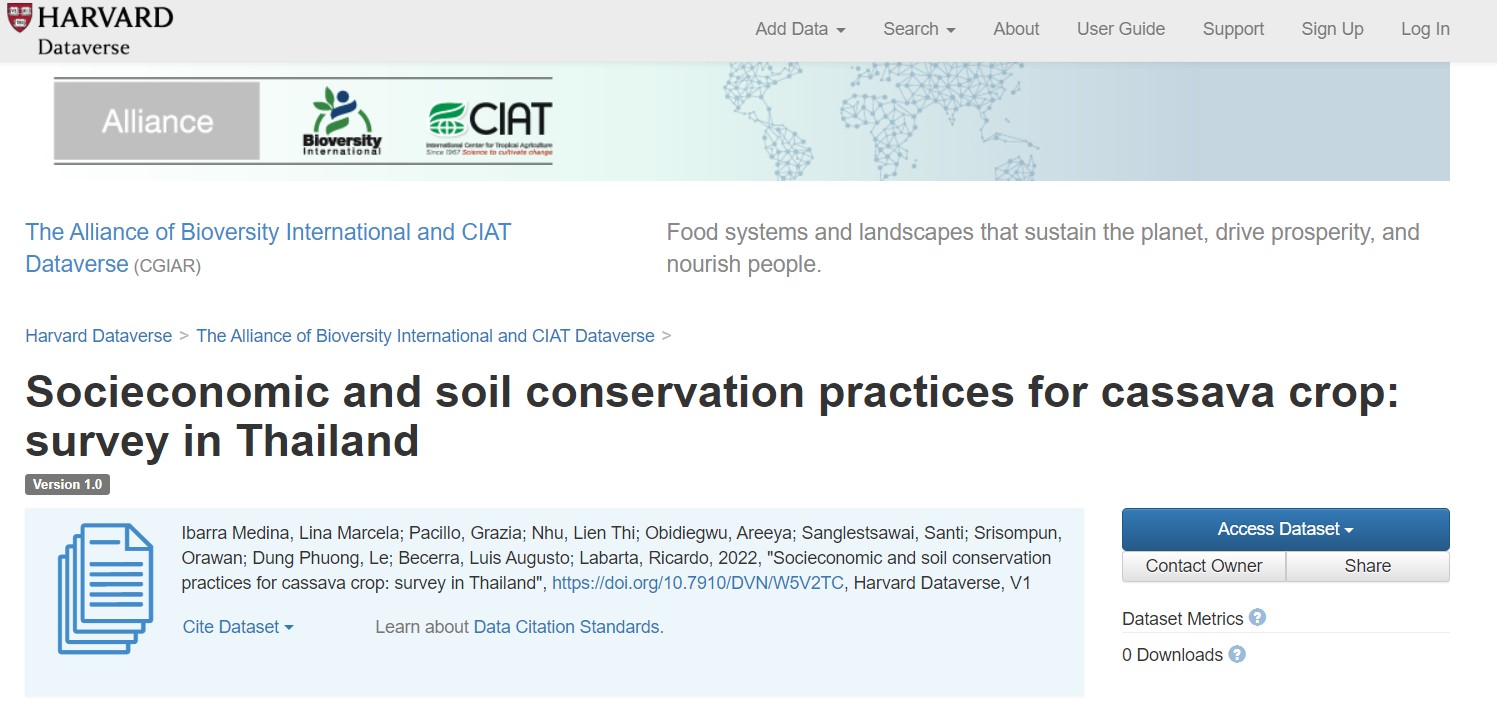Socieconomic and soil conservation practices for cassava crop: survey in Thailand
Different project reports and official statistics have estimated that several dozens of thousands of cassava growers in Southeast Asia have adopted the promoted Soil Fertility and Erosion control (SFEC) practices which may have led to a substantial increase in cassava productivity and the generation of various other impacts. This proposed study aims to document the current adoption of SFEC practices in large areas of Thailand, to understand the factors that have facilitated or limited the adoption of these SFEC practices and the impacts associated with the adoption of SFEC practices on farm, household and environment. The study will use plot and household level data to study the determinants of the adoption of SFEC and to estimate the impacts of this adoption on Cassava productivity, farm income and environmental outcomes.` To our knowledge, adoption and dissemination claims mentioned above have not been confirmed though rigorous adoption studies since 2004. Furthermore, there is no evidence on whether the adoption of these SFEC have led to significant cassava yield increases, to reduce soil degradation and to improve the livelihood of adopting cassava growers. In order to contribute to this knowledge gap about outcomes and impacts of this CGIAR research, we propose the following specific research questions: 1. What is the adoption rate of soil fertility and erosion control (SFEC) practices among cassava growers in Thailand? 2. What are the factors that may have favoured or constrained the adoption of these improved SFEC practices? 3. What are the productivity, livelihood, and environmental impacts attributable to the adoption of SFEC practices in cassava based systems?

